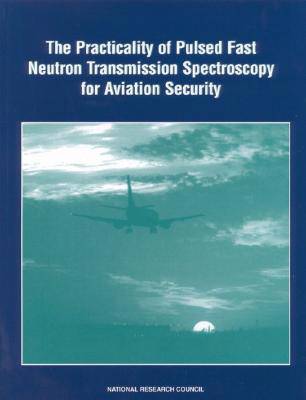
- Retrait gratuit dans votre magasin Club
- 7.000.000 titres dans notre catalogue
- Payer en toute sécurité
- Toujours un magasin près de chez vous
- Retrait gratuit dans votre magasin Club
- 7.000.0000 titres dans notre catalogue
- Payer en toute sécurité
- Toujours un magasin près de chez vous
The Practicality of Pulsed Fast Neutron Transmission Spectroscopy for Aviation Security
National Research Council, Division on Engineering and Physical Sciences, National Materials Advisory Board, Commission on Engineering and Technical Systems, Panel on Assessment of the Practicality of Pulsed Fast Neutron TDescription
A major goal of the Federal Aviation Administration (FAA), and now the Transportation Security Administration (TSA), is the development of technologies for detecting explosives and illegal drugs in freight cargo and passenger luggage. One such technology is pulsed fast neutron analysis (PFNA). This technology is based on detection of signature radiation (gamma rays) induced in material scanned by a beam of neutrons. While PFNA may have the potential to meet TSA goals, it has many limitations. Because of these issues, the government asked the National Research Council to evaluate the potential of PFNA for airport use and compare it with current and future x-ray technology. The results of this survey are presented in "Assessment of the Practicality of Pulsed Fast Neutron Analysis for Aviation Security."
A broad range of detection methods and test results are covered in this report. Tests conducted as of October 2000 showed that the PFNA system was unable to meet the stringent federal aviation requirements for explosive detection in air cargo containers. PFNA systems did, however, demonstrate some superior characteristics compared to existing x-ray systems in detecting explosives in cargo containers, though neither system performed entirely satisfactorily. Substantial improvements are needed in the PFNA detection algorithms to allow it to meet aviation detection standards for explosives in cargo and passenger baggage.
The PFNA system currently requires a long scan time (an average of 90 minutes per container in the prototype testing in October 2000), needs considerable radiation shielding, is significantly larger than current x-ray systems, and has high implementation costs. These factors are likely to limit installation at airports, even if the detection capability is improved. Nevertheless, because PFNA has the best potential of any known technology for detecting explosives in cargo and luggage, this book discusses how continued research to improve detection capabilities and system design can best be applied for the airport environment.
Spécifications
Parties prenantes
- Auteur(s) :
- Editeur:
Contenu
- Nombre de pages :
- 58
- Langue:
- Anglais
Caractéristiques
- EAN:
- 9780309064491
- Date de parution :
- 07-05-99
- Format:
- Livre broché
- Format numérique:
- Trade paperback (VS)
- Dimensions :
- 216 mm x 279 mm

Les avis
Nous publions uniquement les avis qui respectent les conditions requises. Consultez nos conditions pour les avis.






